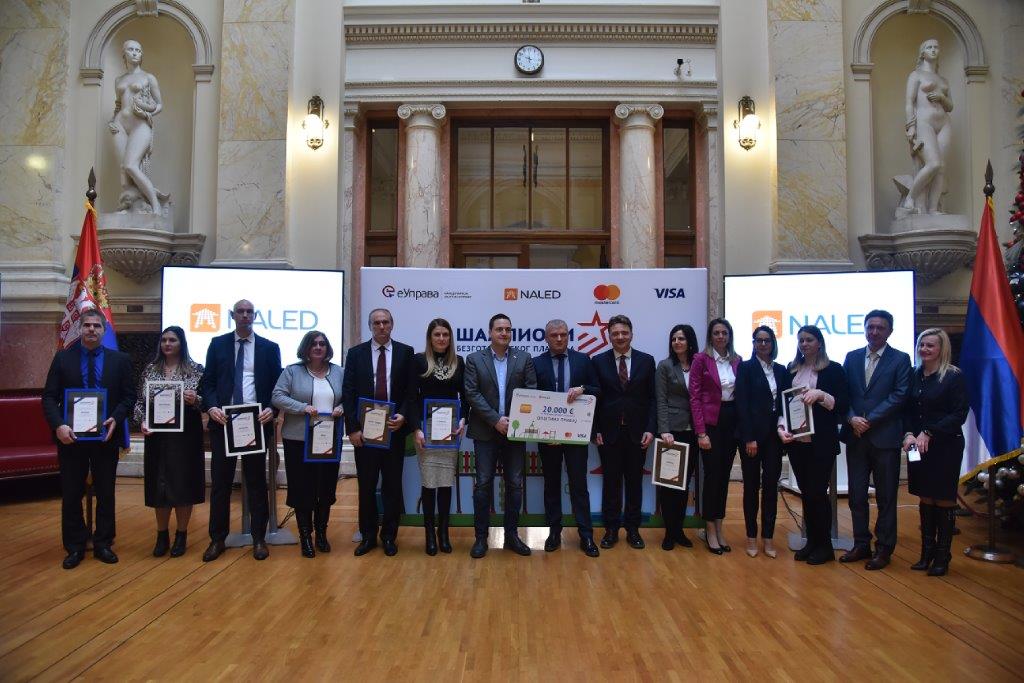Building a cashless society - why should we all care?
For several years, the world has been talking about the prediction of the Central Bank of Sweden that this country will abolish cash by 2023. The news was greeted with uncertainty, astonishment or enthusiasm, but it was certainly not a surprise considering that the Swedish economy has long been profiled as cashless, in which an estimated 98% of transactions are made with cards or digital wallets. A similar development direction is followed by Denmark, which closed its last mint in late 2016, Norway, which introduced mandatory online acceptance of card payments in 2018, and the United Kingdom, where consumers have an average of only £5 in cash in their wallets.
When it comes to cashless society, we are talking about a thoroughly efficient and productive market which successfully navigates the digital evolution of its participants' actual needs and which enables safe, uninterrupted and fast interactions and transactions all over the world. It is for this reason that the transition towards cashless economy is basically led by consumers and innovator ready to change the common business models.
Essentially, consumers wish to use payment methods that are intuitive, that they are familiar with and that are organically available to them through their devices, such as contactless mobile payments. People wish to use safe shortcuts for their day-to-day activities, and the technologies give them just that, assuring an important bonus for the market – the abilty to monitor financial flows. This is why the development of cashless economy is a complex and neccessary process from the business, technological and regulatory aspects.
In Serbia, the importance of a cashless society is acknowledged and is already viewed in correlation with countering shadow economy. Some effective mechanisms have already been established, such as stricter financial controls and incentives such as the lottery with fiscal receipts and card slips. In the coming period, we expect the improvement of the fiscalization system through digitalization, legal regulation of flexible forms of work and the establishment of a public register of non-tax charges in order to increase business predictability. The number of outlets that accept cashless payments - both in the physical and online environment - is constantly growing. In the same way as it is expected and normal to pay by card in any shop, so it becomes normal and expected to pay a tax or a fee by card at every municipal counter, a ride in every taxi vehicle or a bill for any utility service.
Tools and technologies that provide truly inclusive access to digital financial services are already available. Our task is to push the next phase of their adoption, that is, to put them in the hands of those who really need them. We must make sure that, while introducing innovations, no one is left out. We need to design and provide new solutions to everyone, especially small businesses that are the backbone of the local economy. If we want to overcome the economic consequences of a pandemic in a long-term sustainable way, we must be sure that everyone is involved. It is crucial that people gain access to the digital economy and it is not a matter of philanthropy. This is an opportunity to develop commercially sustainable and scalable cooperation with government and private sector partners and to do so in a way that helps societies in the broadest sense to thrive.
What has proven effective in the Scandinavian countries is understanding the connection between the good life and the common good. People do not pay taxes but instead they purchase the quality of life. People do not spend their money on taxes - they invest in their community. Is this realization possible with us overnight? Of course, it does not require a united front of the public and private sectors to educate and encourage all market actors to turn to more transparent business and greater use of digital technologies as a way to manage money smarter and achieve greater security - the security of the individual to perform the desired financial action quickly and safely; the trader’s security that the money will be quickly found in his account and that he will be able to settle his claims with it and pay the employees; the state's security that it will be able to monitor financial flows and that it will be able to calculate and collect taxes in the right measure; the community’s security that the budget revenues necessary for the maintenance of schools, the healthcare system, and roads will be realized. In fact, it is security and it is trust.
There is a connection between understanding, cooperation and trust. If we understand the needs of individual market participants, we are more likely to work together to overcome the obstacles we face, and then we are more likely to trust each other. When we decide that understanding is the first step in cooperation, it will be better for everyone. When we manage to reach mutual trust, it will be better for everyone. If we understand the value of cooperation instead of competition, it will be better for everyone. In a society based on understanding, cooperation and trust, we will all be better off.
Related Content
Non-registered businesses cannot count on state support
10.04.2020
The Government program of economic support measures stands as major support to...Read morePriboj wins the Cashless Payments Champion title
23.01.2020
The competition involved 60 local governments, and during a period of six months, their citizens have used cashless methods to pay 13,500...Read moreThis website uses cookies to ensure the best user experience. By continuing to browse the site, you consent to the use of cookies.
CONTINUE LEARN MORE


